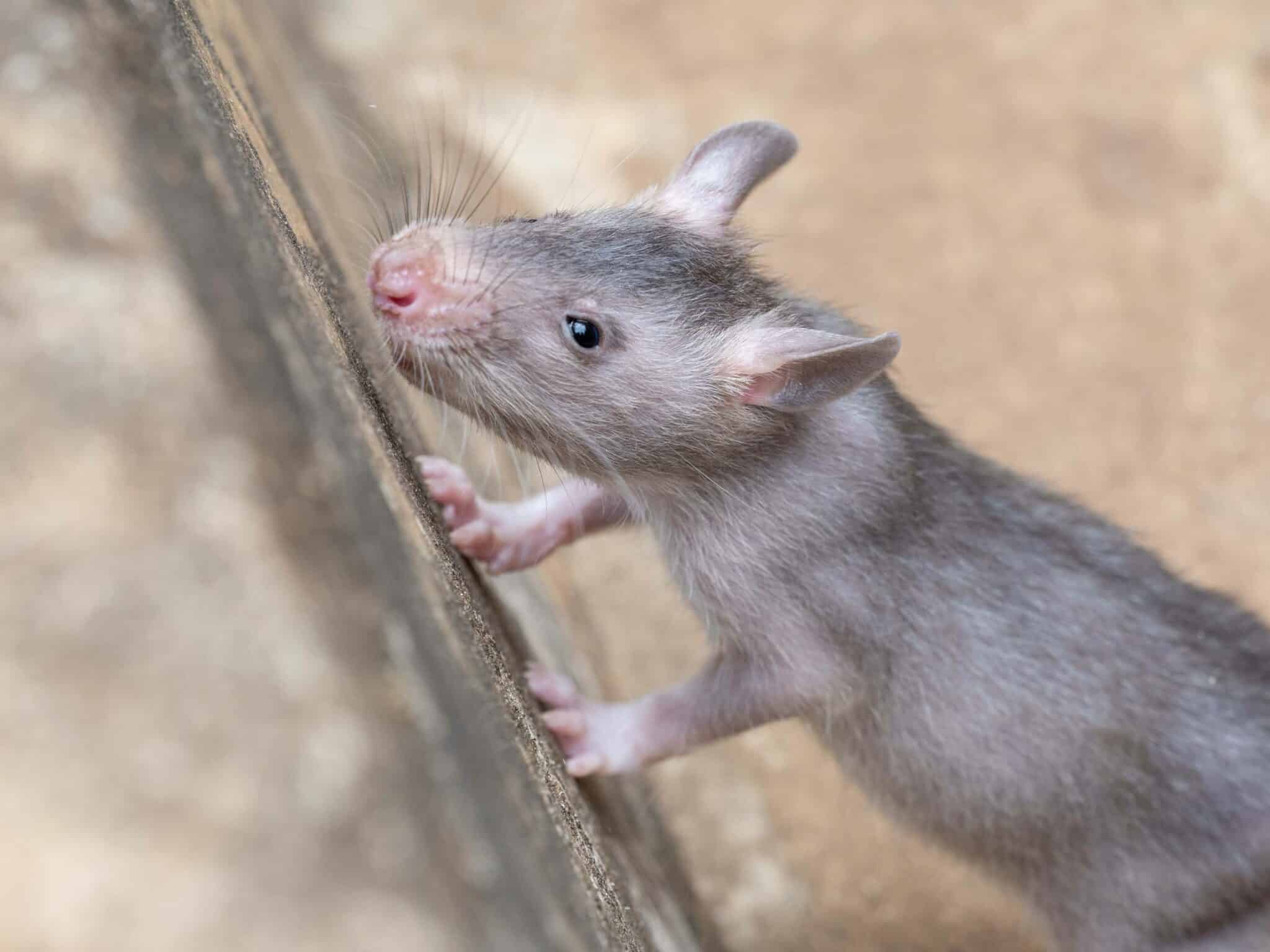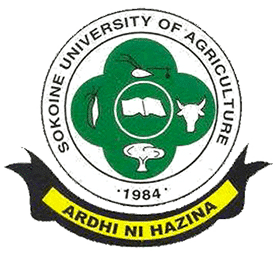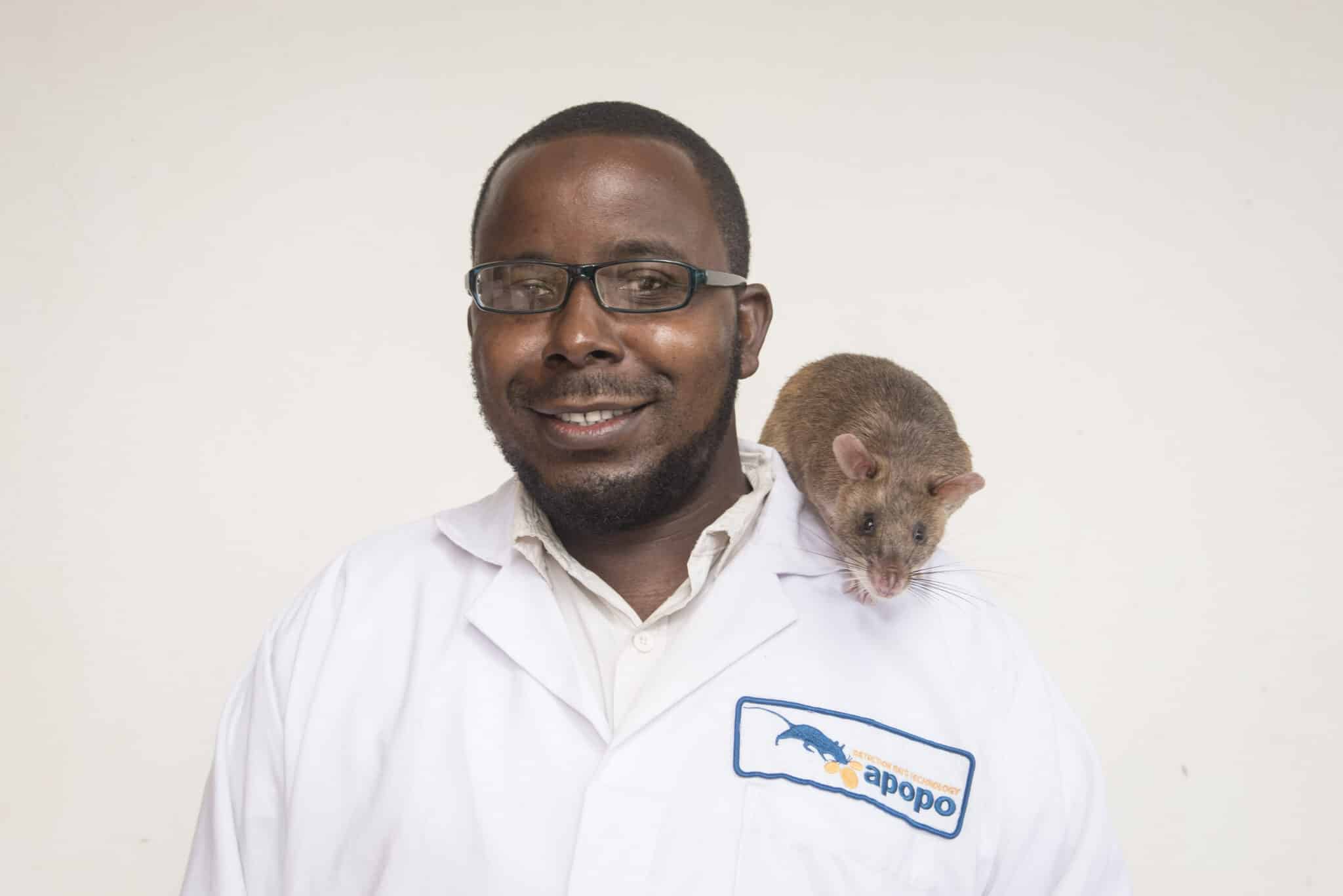Dr. Mungo Ngalameno, Veterinarian and Lecturer in the Department of Veterinary Anatomy and Pathology, was awarded a PhD from Sokoine University of Agriculture (SUA) in 2024. His six years of doctoral research were supported by the African Centre of Excellence for Innovative Rodents Pest Management and Biosensor Technology Development at SUA, in close collaboration with APOPO.
The SUA–APOPO Partnership
SUA has been APOPO’s home since its very beginning. In the early 2000s, APOPO partnered with SUA to test the idea of using African giant pouched rats for humanitarian purposes. SUA provided the scientific foundation and facilities for research, while APOPO translated these findings into practical field applications. Over the decades, this collaboration has grown into a unique model of university–NGO partnership: advancing science, training students, and applying innovations for real-world challenges such as landmine clearance and tuberculosis detection.

APOPO’s detection rats (aka HeroRATs) have been bred, trained and housed at SUA’s Morogoro campus for more than two decades, with students and faculty contributing to breakthroughs in breeding, health care, and animal behavior. SUA students have written dissertations, theses, and peer-reviewed papers based on HeroRAT research, creating a pipeline of Tanzanian expertise in animal science, veterinary medicine, and biosensor technology.
Groundbreaking Research on HeroRAT Reproduction
Within this partnership, Dr. Mungo’s studies focused on the reproductive biology of the African giant pouched rat (Cricetomys ansorgei), the species at the core of APOPO’s HeroRAT programs. These remarkable animals play a critical role in landmine detection and tuberculosis diagnosis across several countries, and improving understanding of their reproductive cycles is key to supporting and sustaining their impact.
His research revealed that HeroRATs, both wild and captive, exhibit seasonal breeding patterns, with peak sexual activity occurring between July and September (dry season), and most pups born between October and December (wet season). This aligns with periods of food abundance, helping to optimize breeding conditions and animal welfare. These findings offer new opportunities to refine APOPO’s breeding program and strengthen the capacity of this biosensor technology.
Contributing to Science and Capacity Building
During his PhD journey, Dr. Mungo published four peer-reviewed scientific papers on topics ranging from breeding cycles and ovulation patterns to genetic identification and reproductive anatomy. His work not only contributes to APOPO’s mission but also enriches the global scientific understanding of a little-known species that holds tremendous potential for humanitarian applications.
Reflecting on the journey, Dr. Mungo said:
“This achievement reflects the power of long-term collaboration between APOPO and SUA in building research capacity, advancing science, and training the next generation of African scientists. I am proud to continue this work in my role as a consulting vet, caring for the rats who bring honor to both institutions and serve communities around the world.”


